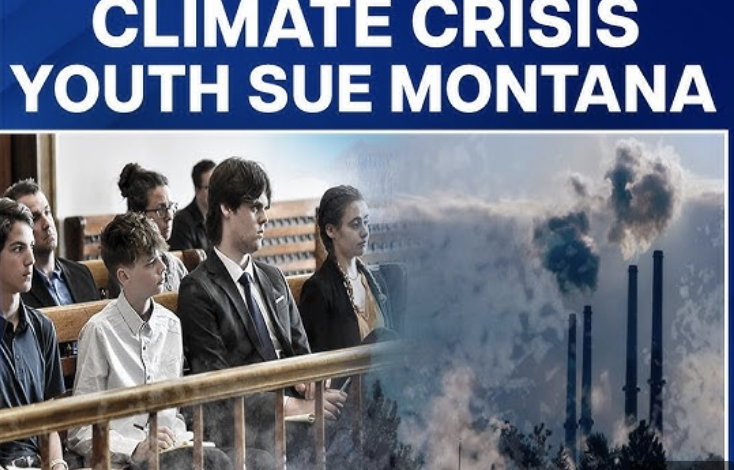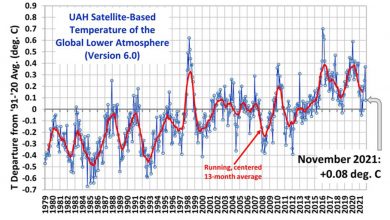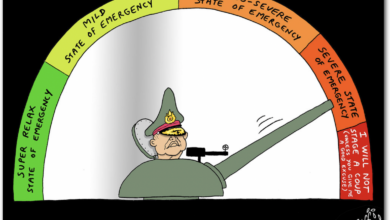Held v Montana Climate Lawsuit

by Judith Curry
My reflections on the Held v Montana Climate Lawsuit – the inside story, my written expert report and why I didn’t testify at the trial. Don’t believe the PR about this case from Our Children’s Trust, which the mainstream media has accepted uncritically.
What the case is about
This case has received substantial national and international press. Here is the summary of the lawsuit provided by climatecasechart:
Youth Plaintiffs Filed Climate Lawsuit Against Montana Asserting Violations of State Constitutional Rights. Sixteen young people filed a lawsuit in Montana state court asserting climate change-based claims under the Montana constitution against the State of Montana, its governor, and state agencies. In particular, the case challenges the constitutionality of Montana’s fossil fuel-based State Energy Policy and the “Climate Change Exception” in the Montana Environmental Policy Act. The plaintiffs allege that anthropogenic greenhouse gas emissions were “already triggering a host of adverse consequences in Montana, including dangerously increasing temperatures, changing precipitation patterns, increasing droughts and extreme weather events, increasing the frequency and severity of wildfires, increasing glacial melt, and causing numerous adverse health risks, especially to children,” and that defendants had continued “to act affirmatively to exacerbate the climate crisis” despite their awareness that the plaintiffs were living under “dangerous climatic conditions that create an unreasonable risk of harm.” The plaintiffs seek a declaration that their right to a clean and healthful environment includes a right a stable climate system, as well as declarations that the State Energy Policy and the Climate Change Exception violate the Public Trust Doctrine and constitutional provisions that protect the right to a clean and healthful environment; the right to seek safety, health, and happiness; and the right to individual dignity and equal protection. They also seek injunctive relief in the form of orders directing the defendants to prepare an accounting of Montana’s greenhouse gas emissions and to develop and implement a remedial plan to reduce emissions “consistent with the best available science and reductions necessary to protect Youth Plaintiffs’ constitutional rights from further infringement … , and to reduce the cumulative risk of harm to those rights.”
The case was filed in 2020. A history of the case is provided at the website for Our Children’s Trust (lawyers for the Plaintiffs), including the full text of the Complaint.
As a quick summary of the trial strategies:
• Our Children’s Trust regards this case as a referendum on the climate change inaction by state governments in the U.S., focusing on how this causing serious harm to children.
• The State of Montana views this to be a boring case about procedural law.
My role
In September 2022, I entered into an agreement with the State of Montana to be an expert witness in this case, including preparing written testimony for submission, being deposed, and testifying at trial. The deadline for my written testimony was Oct 31.
I did not sign a formal agreement with the state of Montana, so I have no legal restrictions on what I say about the case. However, as a general practice I do not discuss my clients publicly and would never repeat anything said to me in private. Since my name has appeared in numerous media articles in conjunction with this case, my involvement is hardly a secret. I have received numerous queries from reporters to make a statement, which I have turned down. I regard it as unprofessional to comment publicly on a case that I am involved with, either before or during the trial. This blog post comprises my post-trial statement about the case.
The full text of my written expert report can be found here [MT Curry report], addressing the points that the lawyers asked me to. From the Conclusions of my report:
Based on the evidence presented in this report, the Plaintiffs’ challenge of these two laws is based on the following mistaken assumptions and assertions:
- Plaintiffs: the release of greenhouse gases from fossil fuel emissions into the atmosphere is already triggering a host of adverse consequences in Montana. Section 1 of this Report demonstrates that the climate-related concerns observed by the Plaintiffs are well within the range of historical natural weather and climate variability, with worse occurrences of weather and climate extremes observed during the early 20th century.
- Plaintiffs: the future threats posed by fossil fuels and the climate crisis are existential. Section 2 of this Report demonstrates that the Plaintiffs’ concerns about climate change in the 21st century are greatly exaggerated, and not consistent with the most recent assessment reports and research publications.
My report further provided an analysis of the prospects for renewable energy in the state of Montana, rebutting Mark Jacobson’s proposal for 100% renewable energy for Montana.
The Plaintiffs solicited 6 rebuttal reports from their witnesses in an attempt challenge my Report, they even dredged up Kevin Trenberth as a rebuttal witness in attempt to take me down. Here is the surrebuttal report that I prepared [surrebuttal] (note this was not filed, but served as preparation for my Deposition).
My Deposition was very interesting, I was grilled by Julia Olson (founder of Our Children’s Trust) for almost 8 hours. She seemed to be pretty frustrated and occasionally too aggressive in her frustration. From my perspective, she didn’t land so much as a scratch.
Bottom line: they were shooting blanks in trying to take me down.
Our Children’s Trust
Our Children’s Trust is a nonprofit public interest law firm based in Oregon that has filed many lawsuits on behalf of youth plaintiffs against state and federal governments, arguing that they are infringing on children’s right to a safe and stable climate. Most famously, they are behind the Juliana et al. v the United States. All of their cases have been tossed out with the exception of the Montana case (recently they may have found a toehold in Hawaii).
Our Children’s Trust very slickly presented their case before the Montana judge (no jury). They featured the young Plaintiffs, all of whom are admirable. The presentation of their case was an impressive infomercial for Our Children’s Trust, which will surely fill their coffers with large donations. The sad part is that the Plaintiffs and Our Children’s Trust have been so BADLY MISLED about climate change, its causes, its impacts and its remedies.
Our Children’s Trust argues that there is a basic human right to a clean and healthful environment. Their main agenda is to declare a 350 ppm constitutional standard for a stable climate.
Their witnesses included many of the youth Plaintiffs (all of whom are native Americans), several adults from Montana’s native American community, a number of Montana academics, and Mark Jacobson an advocate for 100% renewable energy. The direct examination of each of these witnesses was aided by slickly prepared ppt presentations that flattered each witness.
Montana’s case
Montana’s approach to the case has evolved since 2020, has evolved rapidly in the last 6 months since a new legal team was brought in, and even evolved rapidly during the course of the trial. The lawyers I spoke to in Sept 2022 were gone by the end of Oct, with an interim team brought in from the private sector, and then a new team that was hired for the Montana’s State Attorney’s Office in Dec.
MT’s original expert witnesses were apparently tossed, and I and several other expert witnesses were brought on board in the 11th hour, around Sept 2022. Note: instructions for preparing our written reports were received from lawyers two generations removed from the actual trial lawyers. As per questioning during my Deposition, I gleaned that the state originally had a collection of witnesses that were pretty subpar (I don’t know who they were). The new set of witnesses was apparently much better.
The State’s defense is best described in their closing argument. Unfortunately, I don’t see an online copy of that and it isn’t adequately covered in the news reporting on the trial (which is infatuated with the Plaintiffs’ case).
Simply put, the Montana legal team presented this case as one about procedural law. They claimed that the Plaintiffs did not adequately make a case that Montana’s emissions were harming Montana’s citizens nor contributing to global warming in a measurable way. They claimed that the injunctive relief they sought would not restrict Montana’s ability to permit new fossil fuel plants. This line sums it up:
“[this] week-long airing of political grievances that properly belongs in the legislature, not the court of law.”
For the trial, Montana originally listed 3 expert witnesses (including myself) and a number of government witnesses. Media reporting on the status of MT’s witnesses during trial:
“Yesterday, witnesses for the state of Montana testified in court, including Christopher Dorrington, Sonja Nowakowski, and Dr. Terry Anderson. The State declined to call to the stand its single climate science witness, Judith Curry; its only mental health witness, Debra Sheppard; and a number of other government witnesses.”
“Plaintiff counsel Phil Gregory shared with Judge Seeley that Defense expert and climate scientist Judith Curry was canceling her appearance.”
“The attorney general’s office said Monday that “strategy changes as trials progress, and unlike the plaintiffs, the state is not interested in wasting taxpayer resources and the court’s time in presenting unnecessary testimony.” “
And after the trial:
“We know [Curry] watched the whole trial last week,” Julia Olson, chief legal counsel and executive director of Our Children’s Trust, a nonprofit law firm representing the Montana youth plaintiffs, told reporters outside the courthouse on Monday. “It was pretty clear that her testimony wouldn’t stand up against our expert testimony.” (oooh I just looove this one LINK)
Actually I was zoomed in for the entire trial, but watched with 30% of my brain while multi-tasking, mainly focused on MT’s cross-examination of the Plaintiffs’ expert witnesses and the closing statements.
I didn’t cancel my appearance (see below), but I am relieved not to have participated in the trial, especially after seeing how the testimony of expert witness economist Terry Anderson was handled.
I was deeply critical of how the cross-examination of the Plaintiffs’ climate witnesses was going, and very concerned about how my own direct testimony would be handled. I communicated my concerns to the lead MT lawyer numerous times over the first several days of trial. To help ameliorate this situation, I provided detailed scripting and powerpoint slides to be considered for use in my direct questioning. I was more than prepared to answer any questions on cross examination and rebuttal, especially since I had already seen their hand – full of jokers. My concern was about the direct questioning from MT’s lawyers.
MT’s lawyers were totally unprepared for direct and cross examination of climate science witnesses. This was not surprising, since this is a very complex issue that they apparently had not previously encountered. One lawyer who was cross-examining the Plaintiffs’ witnesses kept getting confused by ICP (IPCC) and RPC (RCP). The Plaintiffs were very enthusiastic about keeping witnesses in reserve to rebut my testimony, with several of the Plaintiffs’ witnesses who were leaving on travel presenting pre-buttals to my anticipated testimony during their direct questioning – all of this totally misrepresented what was in my written testimony, and can now be deleted from the court record since I didn’t testify. I can see that all of this would have turned the Hearing into a 3-ring climate circus, and at the end of all that I might not have managed to get my important points across, since I am only allowed to respond to questions.
On Thurs eve, I received a call from the lead Montana lawyer telling me that they were “letting me off the hook.” I was relieved to be able to stay home and recapture those 4 days I had scheduled for travel to and from MT.
But apart from this personal context, the MT lawyers made the right call in making this case about a narrow point of procedural law and avoiding a 3-ring climate circus.
Third grade math
The key mantra of the Plaintiffs is:
“Every ton of emissions counts.”
They used this dozens of times during the Hearing and attributed this to the IPCC (must be WGII, or the highly politicized Synthesis Report). Well in principle every molecule of CO2 that is emitted adds to the atmospheric concentration, but the key issue is the magnitude of the associated warming. Each of the Plaintiffs’ expert witnesses said that Montana’s fossil fuel emissions were harming Montana’s children because of the fossil-fueled warming.
Montana’s lawyers asked nearly all of the Plaintiffs’ expert witnesses “how much warming is being caused by Montana’s emissions?” and “how much harm to the children is being caused by Montana’s emissions?” None would directly answer this question, they would only say that “every ton of emissions counts” and “yes Montana’s children are being harmed by Montana’s emissions.”
Well, with some third-grade math (be careful with the decimal places), you can easily estimate this, and there are several different ways to approach this. Here is a simple calculation:
With regards to Montana’s CO2 emissions, based on 2019 estimates Montana produces 0.63% of U.S. emissions and 0.09% of global emissions. For an anticipated warming of 2oC, Montana’s 0.09% of emissions would account for 0.0018oC of warming. There are other ways to frame this calculation (and more recent numbers), but any way you slice it, you can’t come up with a significant amount of global warming that is caused by Montana’s emissions.
Expertise “bleed over”
The most astonishing thing for me in this trial was listening to Montana’s climate science experts (the “real climate scientists of Montana”). They are all academic ecologists, with several having some national prominence. They were each very fluent at reciting key IPCC talking points (especially the more dubious ones from WGII and the Synthesis Report), and then exaggerating the implications for the youth Plaintiffs with high confidence.
The key climate issues in this case are:
- attribution of extreme weather events that the youth Plaintiffs have encountered in their lifetimes (e.g. wildfire, heat wave, hail storm, drought, early snow melt).
- projections for 21st century warming (several of the Plaintiffs seem to be suffering from pre-traumatic stress syndrome)
- the contributions of MT’s emissions to global warming and severe weather/climate events in MT
None of the Plaintiffs’ climate “experts” have any expertise that relates to actually understanding these key issues. Their ignorance of extreme event detection and attribution is egregious, given the high level of confidence they had in their statements and the inconsistency of their conclusions with the the IPCC AR6 WG1. In their rebuttal reports and also in their direct questioning under trial, they each used the following logic:
- There is a long-term warming trend.
- The long-term warming trend is caused by fossil fuel emissions
- Any recent extreme weather/climate event in MT is caused by the warming trend and hence by fossil fuel emissions
- Any extreme (even worse) weather events in MT that occurred during the first half of the 20th century were caused by something else (e.g. La Nina).
They all relied heavily on the implausible emissions scenario RCP8.5 for future projections of impacts. None could answer the most basic question on the quantitative contribution of Montana’s emissions to global warming. Ooops.
Unfortunately, the MT lawyers didn’t call them out on any of this in cross-examination.
Nevertheless, their expertise as ecologists who examine the impacts of climate variability on ecosystems, bleeds into labelling them as “climate experts” who are making wildly unjustified and highly confident statements about these broader climate change issues. If I had been cross-examining these witnesses, I would have shredded their testimony.
An additional issue re experts. Our Children’s Trust made much of the fact that all of their experts were providing their expertise (written report, rebuttals, deposition, testimony in trial) pro bono — no charge. Why would these academic scientists do this? A few reasons come to mind. They are employed by universities (for the most part funded by the state of Montana); universities place few restrictions on what their employees do and working on the trial might be more interesting than doing other stuff. Or they might be climate activists, who feel strongly about winning the war against evil fossil fuel companies and government officials that allow them to operate. And of course, playing the role of climate activist scores you points at most universities and in professional societies.
DeSmog gleefully reported that Montana is Paying a Climate Denier to Give Expert Testimony in Upcoming Trial. What I am being paid ($400/hr) was elicited in my Deposition. If this sounds outrageous to you, I have been criticized by headhunters recommending me to clients that I am charging far too little. I was criticized by Julia Olson for not providing my testimony for free. I reminded her that I am in an entirely different position from the University professors that are already on the state government payroll. The money doesn’t go into my pocket, but MT is invoiced by my company Climate Forecast Applications Network (CFAN), who receives the funds. This covers my time (and that of my staff members) that would otherwise be used in working on projects for paying clients and working to generate more revenue for the company – as President of CFAN, that is pretty much my job description. Further, one of the services that my company provides is climate litigation services – this includes educating lawyers and defendants/plaintiffs, evaluating materials, writing reports, helping prepare questions for cross-examination, etc.
Here are the advantages of using expert witnesses from the private sector or a NGO, rather than university professors. University scientists are narrowly focused and naïve about the role of their science in public policy; further, most are not very good at public communication, they are not used to being challenged and don’t bear up well to cross-examination. By contrast, scientists working in the private sector/NGO work on a broad range of problems, understand policy/political context, are used to being challenged, are experienced public communicators, and have a staff to do fact checking, reference checking, general quality control. This difference has been emphasized to me multiple times when I have been contacted by a Congressional staffer for suggestions for witnesses in an upcoming hearing. My first instinct has been to recommend an academic with the appropriate expertise; their response was that they are looking for someone broader who is a good communicator. So, if you see a lot of witnesses from the private sector and NGOs testifying before Congress, or the same old experienced academics, this is why.
Being a paid expert witness does not imply that your statements are biased because they are bought and paid for by the lawyers. Science is a public good, and what I have to say is the same regardless of which “side” might be paying for my services (of course, different “sides” may ask me to respond to different issues). A biased, partisan expert witness will be discredited by effective cross-examination. In establishing my reputation as a reliable source for litigation support, it is absolutely essential that my reports and testimony be accurate, relevant, strongly justified, tightly argued, and non-partisan. You judge for yourself.
Broader implications
There are several additional broader implications here.
Our Children’s Trust, and other advocacy groups filing lawsuits against fossil fuel companies and electric utility companies, aren’t going away and are arguably stepping up their activities. Governments at all levels, companies, judges and lawyers are ill prepared for such lawsuits (MT’s lawyers are a case in point). Our Children’s Trust is apparently “helping” this situation by educating judges (uh oh). Montana’s lawyers, in spite of some ineptness, show the way forward here. Focus these cases on narrow legal points and procedures. Issues surrounding climate change policy related to emissions or whatever, should be addressed by the political and legislative process, not by judicial decree.
There is no right to a “safe and stable climate,” for the simple reason that Earth’s climate is constantly out of equilibrium and evolving. Montana has a pretty wild climate history. 600,000 years ago there were hugely massive volcanic eruptions from Yellowstone. Around 20,000 years ago, Montana and the entire northern part of the continent was under a massive ice sheet that was more than a half mile thick. Around 15,000 years ago there were massive floods that created Lake Missoula. On the time scales of centuries, the climate is never in equilibrium, even in the absence of external forcing like volcanic eruptions of human-caused CO2 missions. There is a whole spectrum of time scales in the deep ocean and ice sheets that keep the climate in a state of disequlibrium on century to thousand year time scales. The impacts of natural (internal) decadal and interannual climate variability are readily evident in the fingerprints of extreme weather/climate events that have occurred in MT since 1900. There was nothing particularly “safe” about the Earths climate circa 1988 (or different from the current climate), when CO2 concentrations were 350 ppm.
Climate change, both natural and human caused, along with the associated weather extremes, is an ongoing predicament that humans have had to adapt to throughout our history. We need to get on with it, and not tie one hand behind our back by dismantling our energy systems that support the wealth, infrastructure and technologies that allow us to adapt to extreme weather and climate change. Sure, lets look forward to advanced energy infrastructure for the 21st century; however, a landscape covered with wind/solar farms and transmission lines that produces unreliable and expensive electricity is far from the only option. Let the people of MT decide on what they want through the political process.
The IPCC, whatever its flaws, serves as an important reference point for policy and legal challenges. The IPCC is supposed to be policy neutral. Well, it most certainly isn’t (see Chapter 4 of my book Climate Uncertainty and Risk). In the IPCC Sixth Assessment Report, the main text of WGI (not the Summary for Policy Makers) did a fairly good job of adhering to policy neutrality. By contrast, the WGII Report and Synthesis Reports were egregiously horrible in being policy prescriptive. As a result (including the IPCC’s addiction to RCP8.5/SSP5-8.5 in spite of the UNFCCC abandoning these scenarios), the IPCC is losing credibility for policy making and has laid its Reports open to challenges in the policy making process and legal proceedings.
JC reflections
Well, the young Plaintiffs and Our Children’s Trust got to have their day in court. They have gotten much of favorable publicity and will raise a lot of $$ from this. However, the fundamental premises behind their lawsuits are deeply flawed, based on a perceived “right” to a safe and stable climate, inappropriate attribution of every extreme weather event to fossil-fueled warming, and pre-traumatic stress syndrome in children from the apocalyptic scenarios and rhetoric that they are exposed to. Nevertheless, Our Children’s Trust has massive potential to waste everyone’s time and money towards obtaining feel-good policy concessions from state governments, that have no material impact on emissions or the climate but have the potential to do more harm than good overall.
Please, stop scaring and exploiting the kids in an attempt to score political points in the climate/energy debate. If you are concerned about your grandkids, help them to live their best lives, educate them that bad weather has always happened and will continue to, and don’t lead them to think we can control bad weather by eliminating fossil fuel emissions. Point them in directions to help make a meaningful difference in developing new technologies and protecting the quality of our air, water and soils. And if they are interested in climate change, encourage them to learn geology, oceanography and atmospheric science.
So, exactly what is the point of this case? Even if the Plaintiffs win, this would not restrict permitting of new fossil fuel power plants in MT. It seems the purpose of all this (apart from publicity and scoring political points) is to make the kids feel like their government “cares” about the climate, because the adults in their lives and the media they are exposed to have irrationally scared them. Sorry, as attractive as they are, these Plaintiffs don’t get preferential treatment in the political process.
So to me, this whole case seems nonsensical from start to finish. The judge should rule in Montana’s favor, but who knows — the judge seemed biased in favor of the Plaintiffs. We shall see. Apparently, a ruling on this will take several weeks.
One interesting outcome of all this. I am now described in the leftwing media as “climate crisis denier.” Apt.
And finally, for those of you who are regretting that this didn’t turn into a 3-ring climate circus, check out some of the ppt slides that I prepared for the MT lawyers for my direct examination on the basic climate issues using NOAA and other government sources [MT trial JC ppt]. The “real climate scientists of Montana,” who are actually ecologists, should have been held to account for their biased cherry-picked presentation of the data, emphasis on the implausible emissions scenario RCP8.5, ignorance on the topic of detection and attribution of extreme weather/climate events (even as cited in the IPCC WGI Report), and poorly justified and overconfident conclusions. You be the judge as to who is doing the cherry picking (which Whitlock, witness for the Plantiffs, has accused me of doing, which is widely quoted in the media reports on the case).
Well, it would have been fun to take on Our Children’s Trust, plus the “real climate scientists of Montana.” Apart from my personal notions of “fun”, Our Children’s Trust is owed a serious reckoning on the flaws of their fundamental premises and arguments. But Montana’s lawyers were right not to waste Montana’s time and money on this.
p.s. Thanks to all who have purchased my new book Climate Uncertainty and Risk. The paperback version briefly flickered to be ranked #1 in Climatology at amazon.





